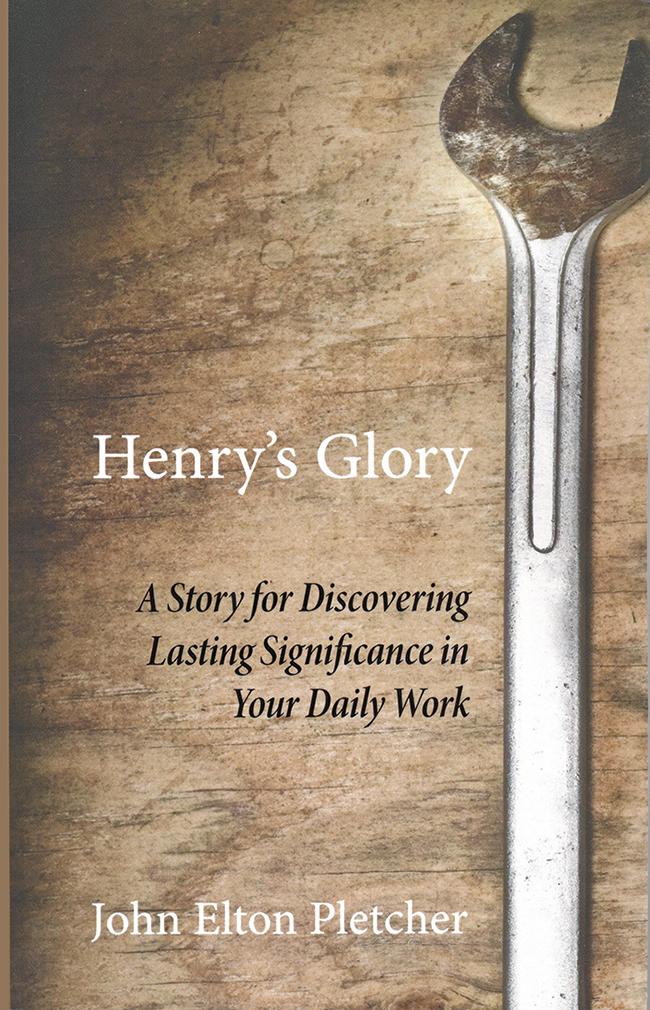
3 minute read
Reviews
Mission in an old Ford
Henry’s Glory: A Story for Discovering Lasting Sig-
nificance in Your Daily Work. By John Elton Pletcher (Resource Publications, 2013, 122 pp. $17 U.S.)
We’ve delighted in the steady flow of books that link daily work with Christian faithfulness, but this is the first we’ve seen that takes the form of a novel.
Author John Elton Pletcher, lead pastor of Manor Church in Lancaster, Pa., says he wrote the book for “grease-covered car guys, running-fast real estate gals, plumbers, pastors, farmers, teachers, busy soccer moms, CEOs and everybody else who is working hard day after day.” He wanted to help them answer the question — “How does my everyday job, where I spend so many crazy hours of my life, connect to God’s larger story and his purposes in the world?”
We’re not used to hearing pastors stake out this territory; in fact, many pastors default to a They found that concentration on every kind of work the “gathered church” rather can be missional than the “dispersed church” of Monday— mechanics, to-Friday. Pletcher’s book is a welcome plumbers, doctors, addition to our shelf. The story, which stay-at-home serious literature fans might find a bit didactic, follows Zach, moms, stock traders a young architect who has gone to visit his and CEOs. dying grandfather and inherits Henry, a 1977 Ford F-100 pickup that has seen better days. During the death vigil he meets up with Maggie, a longtime friend who is now a veterinarian. Then there’s Uncle Clyde, a traditionalist pastor whose favorite quote is “Only one life, ‘twill soon be past. Only what’s done for Christ will last.” That mantra not only defines his own meagre conception of ministry, it also fuels Zach’s simmering guilt for having chosen a secular, and therefore second-rate, profession.
Zach and Maggie become immersed in Grandpa’s world. As they try to get Zach’s inheritance running, they meet one of his downhome neighbors who has learned over the years that “my mission field is fixin’ Fords and hangin’ ‘round the truck stop with these truckers.” In hearing his faith journey they learn that the old codger wore his overalls into the baptismal waters to symbolize that his work was being baptized, too. The cast of characters (including some surprising historic personages) brought into their path as they preside over Grandpa’s last days serves to enlarge their understanding of creation, redemption and mission, not to mention the role of work in God’s divine economy. They discover, among other things, that it was the Greek philosopher Plato who came up with the notion of dual spheres and patriarch Augustine who imported it into the church and concretized a sacred-secular split that would plague the church for centuries. Maggie had never before seen any link between her veterinary work and the creation story, so it was new to her that her Monday-toFriday career could mean anything to God’s kingdom. An erudite hospital chaplain helps Maggie and Zach see that being made in God’s image means “we are commissioned to be co-creators and coworkers in his kingdom.”
They discover a new meaning of “missional.” They find that people in every imaginable kind of work can be missional — car mechanics, doctors, plumbers, stock traders, stay-at-home moms and corporate executives.
Zach gets an answer to his burning question as to whether his daily work as an architect can count for something beyond supplying money for tithes and offerings, or providing a platform to proselytize. He comes to see his professional relationships in a new light. “I’ve let myself become so consumed with the design grids and the buildings, and not so concerned about the people who help build them and eventually inhabit them,” he says in a moment of discovery.
This is lively theology in a lilting, down-to-earth key. It will strengthen your faith — and your work.
Each chapter concludes with discussion questions. Resources for further study are added at the end.
How does an old down-at-the-wheelwells pickup fit into all this as an enduring metaphor? For that you’ll have to read the book yourself. — Wally Kroeker




